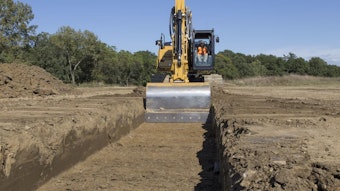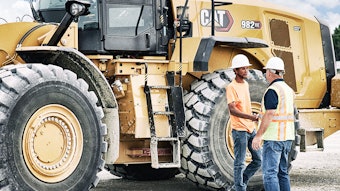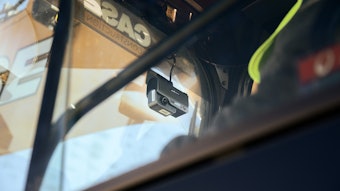Ballmann Earthworks’ revenues have quadrupled since 2016, doubling the company’s workforce just as the crisis in finding skilled workers overheated. But Jon Ballmann isn’t the kind of guy who’s “making do” with whatever butt he can put in a seat. He knows his crewmembers are the key to delivering the kind of customer service that has kept his company growing for 15 years in the busy development market west of St. Louis, Mo.
Ballmann targets 5% to 10% growth in a five-year stretch, in part because it’s a rate that he can manage with the people he has consistently delivering a high level of customer service and craftsmanship. The company’s business is transforming the largely rural communities where he grew up to server a growing population. Projects in this big-river country are often equipment-intensive, moving tens of thousands of cubic yards to fill ravines or cut through thinly covered stone ridges. He’s seen the meteoric rise of some contractors and watched them come back down hard.
“If you grow fast you can load up on employees, but they’re not quality employees,” Ballmann says. “We have a very strong customer base, but if we lose a $1-million-per-year customer, that could be a crucial, crucial piece of our business gone in a split second. I always tell my employees, ‘The customer’s always first.’”
Ballmann finds the best prospects for his 28 regular employees are young people who want to learn. Many come with farm-equipment backgrounds. He works carefully with them and gives them responsibility when he thinks they’re ready.
Perhaps the key to integrating them into the core team that he keeps working year-round is to accept that nobody’s perfect, learn from honest mistakes and move on to the next task.
Ballmann makes a point to know what kind of work each of his employees do best. Each of the company’s key machines have a dedicated operator (productivity with an equipment-care bonus). He does his best to assign people to tasks in a way that builds on their strengths to get the most out of a crew.
People who are making fuel runs drive company pickup trucks, and company picnics help build camaraderie. But playing to employees’ skills and making and effort to accommodate their scheduling preferences creates some mutual respect–Ballmann calls his core 28 “friends.” Knowing that his team will put Ballmann Earthworks’ customers first is worth keeping them earning year-round, even if the work’s not always real lucrative.
















